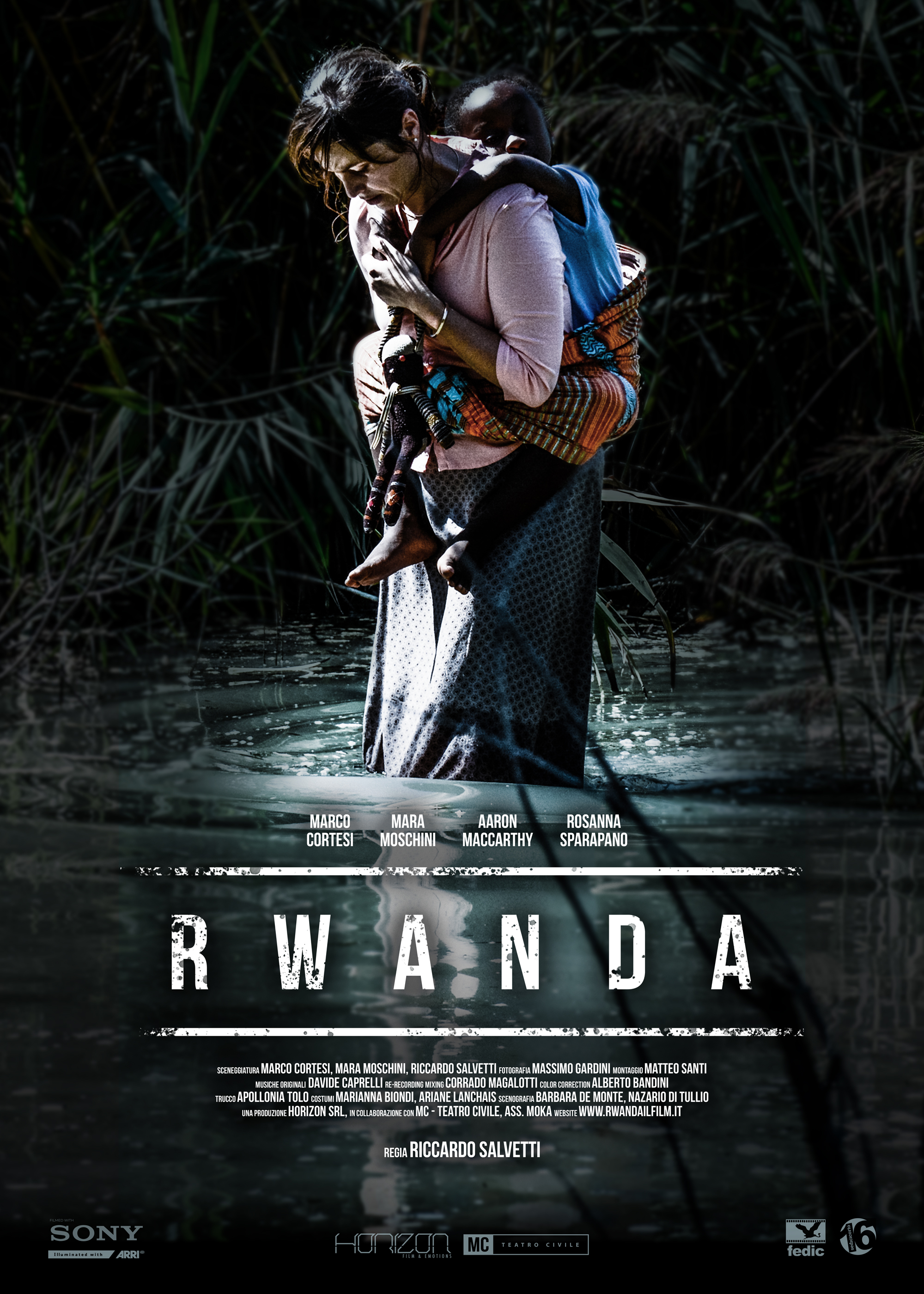
- Questo evento è passato.
Proiezione speciale: Rwanda ai martedì del mondo
8 Ottobre 2019 ore 20:30 - 22:30

“Rwanda” porta sullo schermo una pagina di storia che solo in apparenza sembra lontana nel tempo e nello spazio, ma che si mostra oggi in tutta la sua disarmante attualità. In una società che si fa sempre più multietnica e globalizzata, la coesistenza tra persone provenienti da background differenti presenta sfide che devono essere vinte per assicurare un futuro di pace e cooperazione.
Rwanda non solo narra una vicenda che parla al nostro presente, ma lo fa attraverso meccanismi produttivi nuovi. Basato sull’omonimo spettacolo teatrale di Marco Cortesi e Mara Moschini, il film è stato finanziato da una Campagna di Crowdfunding e dal sostegno di numerose istituzioni e sponsor. Il set diviene fucina, laboratorio di integrazione e cooperazione: oltre 480 uomini e donne provenienti da 24 paesi dell’Africa Centrale chiamati ad interpretare una pagina del loro stesso passato. Insieme a loro numerosi cittadini rwandesi nel ruolo che fu loro durante i drammatici eventi di quella primavera di sangue che scosse il paese africano nel 1994 con oltre 800.000 vittime in 104 giorni.
A guidarli, dietro la macchina da presa, il regista Riccardo Salvetti al suo esordio cinematografico in un lungometraggio.
“Ho osservato questo film per quasi mille volte, con sguardo critico per ottenere il meglio… E nonostante tutto Rwanda riusciva sempre e comunque ad emozionarmi anche conoscendone ogni secondo a memoria. Sono stati anni dove io e Rwanda ci siamo accompagnati senza tregua, e mentre cercavo di far crescere il film, spesso mi accorgevo che forse era il film a far crescere me.”
Rwanda (91’ – Italia 2018)
Augustin Maniriho è un giovane operaio. Ha una moglie, Jolande, e una bambina di 6 anni di nome Monique. Ama cantare mentre la mattina si reca al lavoro e quando in officina tutto va storto pensa alla sua famiglia e si sente l’uomo più fortunato del mondo.
Cecile Hakizimana è una giovane maestra di scuola elementare. Ha un marito, Paul, e una bimba di 4 anni di nome Sophie. Cecile adora il suo lavoro ed è certa che prima o poi realizzerà il suo sogno nel cassetto: pubblicare un libro di favole per bambini.
In quella primavera di sangue che si abbatte sul Rwanda nell’aprile del 1994, un nome e un cognome però non bastano e a nessuno importa ciò che ami e come si chiamano i tuoi figli.
Ciò che conta davvero è quanto compare sul tuo documento d’identità alla voce: “razza”. Se c’è scritto “Hutu” devi uccidere, se c’è scritto “Tutsi” devi morire.
“Rwanda” brings to the screen a page of History that apparently appears distant in time and space, but that shows itself today in all its contemporary bearing.
In a society that is becoming increasingly multi-ethnic and globalized, the coexistence of people from different backgrounds presents challenges that must be overcome to ensure a future of peace and cooperation.
Rwanda not only tells a story that speaks to our present, but does so through new cinematographic mechanisms. Based on the theater play of the same name by Marco Cortesi and Mara Moschini, the film was financed by a Crowdfunding Campaign and the support of numerous institutions and sponsors. The set becomes a workshop, a laboratory of integration and cooperation: over 480 men and women from 24 Central African countries are called upon to interpret a page from their own past. Together with them many Rwandan citizens play the role that was theirs during the dramatic events of that spring of blood that shook the African country in 1994, with more than 800.000 victims in 104 days.
To guide these men and women behind the camera, the director Riccardo Salvetti at his film debut.
“I’ve watched this film almost a thousand times, with a critical eye to get the best out of it… And despite everything, Rwanda always managed to excite me even if I knew every second of it by heart. It’s been years where Rwanda and I have accompanied each other relentlessly, and as I tried to make the film grow, I often realized that maybe it was the film that was making me grow.”
Rwanda (91’ – Italy 2018)
Augustin Maniriho is a young worker. He has a wife, Jolande, and a 6-year-old girl named Monique. He loves to sing while he goes to work in the morning, and when everything goes wrong in the workshop, he thinks of his family and feels like the luckiest man in the world.
Cecile Hakizimana is a young primary school teacher. She has a husband, Paul, and a 4-year-old girl named Sophie. Cecile loves her work and is sure that sooner or later she will realize her dream: to publish a children’s fairytale book.
In that spring of blood that hit Rwanda in April 1994, a name and a surname are not enough and nobody cares who you love, nor the name of your children.
What really matters is what appears on your identity card under the heading: “race”. If it says “Hutu” you have to kill, if it says “Tutsi” you have to die.
